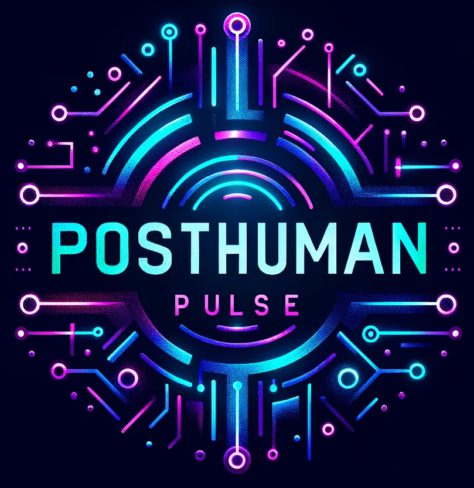Discover how innovative AI-driven search capabilities are reshaping the online search landscape.
Picture a world where your search engine understands context, anticipates follow-up questions, and offers results that truly align with your queries. OpenAI is making this vision a reality with the expansion of ChatGPT Search to all users, a significant move in its “12 Days of OpenAI” event. As Google continues to face criticism for declining search quality, this development could redefine our online search experiences. Dive in to explore how ChatGPT Search is aiming to fill the void left by traditional search engines and what it means for the future of online search.
The Rise of ChatGPT Search
In an era where traditional search engines are often criticized for their diminishing quality, OpenAI’s bold move to expand ChatGPT Search access to all users marks a pivotal moment. Previously limited to subscribers, this feature is now available to everyone as part of OpenAI’s “12 Days of OpenAI” initiative. The strategic timing of this rollout was spotlighted by a recent Gizmodo article, which suggests that OpenAI is not just entering the search engine market but is poised to reshape it.
A key insight from the article highlighted that traditional search engines like Google are losing their edge, creating a unique opportunity for alternatives like ChatGPT. This sentiment echoes throughout tech communities, reflecting a growing desire for more innovative search solutions. “OpenAI is challenging the status quo, introducing a search engine that might just be the game-changer the market needs,” the Gizmodo report noted.
By removing the subscription barrier, OpenAI is not only opening up its technology but also setting the stage for a new kind of competition in the search landscape. This democratization of access is crucial as it allows a broader user base to experience AI-driven search capabilities firsthand, potentially transforming how we interact with search engines.
Filling the Search Engine Gap
The dissatisfaction with traditional search engines is palpable. Users frequently express frustration over irrelevant results and a lack of context in search outcomes. OpenAI’s ChatGPT Search aims to address these issues by introducing an AI-enhanced alternative that promises a more intuitive and accurate search experience. According to insights from a detailed analysis, the market is ripe for disruption, with users eager for a search tool that truly understands their needs.
ChatGPT Search is designed to bridge the gap left by its predecessors. Its AI-driven technology allows it to provide contextually relevant answers, a feature that most current search engines struggle with. The MacRumors article elaborates on how ChatGPT integrates contextual information and supports follow-up questions, enhancing the overall search experience.
The potential for ChatGPT Search to become a preferred tool is significant, especially as it leverages AI to process and understand user intent more effectively. This shift not only promises to improve search accuracy but also to offer a more personalized interaction with the search engine, something users have been clamoring for.
Enhanced Search Capabilities with AI
ChatGPT Search is not just another search engine—it’s a leap forward in integrating AI with everyday search tasks. The technical enhancements it brings are noteworthy, providing users with a search experience that feels more like a conversation than a series of disjointed queries. One of the most compelling features is its ability to offer contextual information alongside search results, making it easier for users to find exactly what they need without sifting through irrelevant links.
A detailed report from MacRumors highlights these advancements, noting that the improved AI-based searches can deliver links to relevant web sources and support for follow-up questions. This capability transforms the way users interact with search engines, allowing for a more fluid and dynamic search process.
The impact of these enhancements is profound, as they address a core issue with traditional search engines: the lack of context and continuity. By understanding and anticipating user needs, ChatGPT Search offers a more seamless and efficient search experience, setting a new standard for what users can expect from a search engine.
Transforming the Search Landscape with AI
The introduction of ChatGPT Search signifies a major shift in the AI landscape. Its potential to disrupt the search engine market is undeniable, offering a viable alternative that challenges the dominance of long-established players like Google. This development could pave the way for more user-centric search solutions that prioritize contextual understanding and user intent.
Practical applications of ChatGPT Search are vast. Whether it’s assisting digital marketers in finding precise data or helping researchers access relevant studies more efficiently, the AI-driven approach promises to enhance productivity across various fields. However, as with any technological advancement, there are challenges to consider. Privacy concerns and the need for continuous AI training are critical issues that must be addressed to ensure the technology’s responsible use.
Looking ahead, the implications of ChatGPT Search extend beyond immediate user benefits. As AI continues to evolve, we can expect more sophisticated search capabilities that further blur the lines between human and machine interaction. The future of search engines may very well be shaped by AI’s ability to learn, adapt, and provide increasingly accurate and personalized results.
OpenAI’s ChatGPT Search is poised to redefine the search engine landscape by introducing AI-driven capabilities that cater to a more context-aware and personalized user experience. This move not only challenges the status quo but also sets the stage for future innovations in search technology. As users become more familiar with these enhanced capabilities, the demand for more intuitive and efficient search solutions will likely grow, leading to further advancements in the field.
“OpenAI is challenging the status quo, introducing a search engine that might just be the game-changer the market needs.” [Gizmodo]
“The improved AI-based searches can deliver links to relevant web sources and support for follow-up questions, transforming the user experience.” [MacRumors]
Learn More:
- An in-depth analysis by Gizmodo on ChatGPT’s market impact
- MacRumors’ report on the technical advancements of ChatGPT Search
- Industry reports
- Expert analyses

